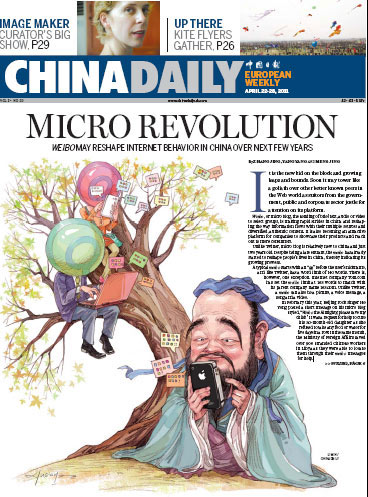Society
Not over until the fat lady sings
Updated: 2011-04-19 09:00
By Daniel Garst (China Daily)
ZHANG CHENGLIANG / CHINA DAILY
Traditional opera is enjoying a revival in the capital thanks to some modern touches

On the topic of Peking Opera, a friend recently said to me: "I don't like it, I can't understand the lyrics they are singing and don't like the pronunciation. It's so different, they take several minutes to say one word." This very literate woman added that the plots and acting in both Peking and Kunqu opera are "so slow".
Her views on Peking and other older Chinese opera genres were echoed by many students at the Beijing International Studies University - I taught there my first year in Beijing -when I asked them about the art form. Like my friend, they mostly preferred listening to pop or rock music.
According to a 2007 National Public Radio broadcast in the United States, as recently as the early 1960s some 2,000 troupes performed traditional Chinese opera across the country. Now just 76 troupes exist. In Beijing, many of the older Peking Opera theaters in the historic Dashilar area have been converted into homes or torn down to make way for "redevelopment". The opera audience increasingly consists of older people and foreign tourists.
Not surprisingly, many people call Peking Opera a dying art form. British journalist Jasper Becker writes in his excellent history of Beijing, City of Heavenly Tranquility, that the Chinese public "no longer cares to buy tickets" for Peking Opera and that generations have "grown up ignorant of both the art and the culture from which it sprang".
However, as American author Mark Twain famously said about the reports of his death, this obituary is premature. In the past few years, traditional opera has enjoyed a mini-revival.
This is first evident in the large turnout for several high-profile opera performances in 2010 and 2011. Last October at the Chang'an Grand Theater, an opera dealing with Han Dynasty (206 BC-AD 25) court intrigue played to a sellout crowd, while audiences also this year flocked to Mei Lanfang Grand Theater's Western and Chinese new year Peking Opera galas, which included renditions of classic arias.
The popularity of Taiwanese author Pai Hsien-yung's elective Peking University class on Kunqu opera - students pack the 300-seat auditorium where it's held - also shows that it can appeal to younger people. Thanks to Pai's charismatic teaching and promotional work by local authorities, some 100 students from universities across Beijing auditioned last March for a spring performance of the Kunqu classic, Peony Pavalion.
To maintain this comeback traditional opera will have to adapt to contemporary audiences. The use of large-screen subtitles has helped, and the same can be said for shortening and adding modern touches to long operas.
Zhang Jun's condensed 70-minute version of the 18-hour Peony Pavalion is a case in point. This well-reviewed production, which played in a Shanghai garden in August 2009, featured recorded music and sounds to accompany the traditional string and percussion orchestra. The recordings were piped out from speakers hidden in the trees, making it seem as if they mysteriously emanated from the woods.
Lately the Chinese government has actively supported traditional opera. Steps include the 2006-2007 competition in Beijing among 11 national troupes for substantial prize money, the conversion of Mei Lanfang's old siheyuan into a gem of a museum and subsidies for the Meilanfang Grand Theater.
However, more will have to be done to promote the art form. For example, during a spring 2009 visit to the World Art Museum in western Beijing, I noticed a poster for an opera festival while leaving the military museum subway station. The operas in this festival were all great European classics - La Boheme, Tosca, Turandot and Carmen - and I wondered why it did not include at least one traditional Chinese opera.
This story also illustrates why traditional Chinese opera, including Peking Opera, will never regain the wide audience across social groups it enjoyed in its heyday. Beijing's recent transformation into a world-class cosmopolitan city, coupled with modern media, has created many alternatives to traditional opera when it comes to both high-brow and popular entertainment.
However, with a little luck, continued government help and willingness to adapt to modern audience tastes, traditional Chinese opera can remain a part of contemporary Beijing's embarrassment of cultural riches.
The author is a corporate trainer at a State-owned enterprise. To comment, e-mail metrobeijing@chinadaily.com.cn. The views expressed here do not necessarily reflect those of METRO.
E-paper
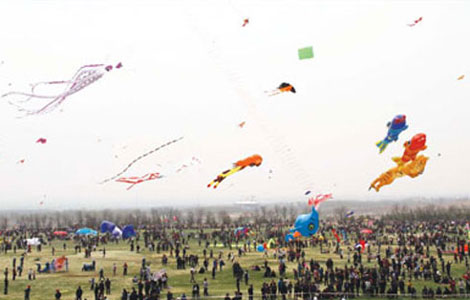
Blowing in the wind
High-Flyers from around the world recently traveled to home of the kite for a very special event.
Image maker
Changing fortunes
Two motherlands
Specials
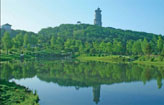
Urban breathing space
City park at heart of Changchun positions itself as top tourism attraction
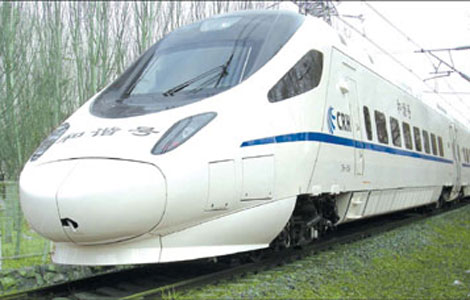
On a roll
Auto hub Changchun also sets its sight on taking lead in railway sector
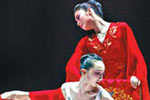
The stage is set
The Edinburgh International Festival will have a Chinese flavor this year.
